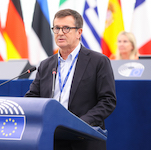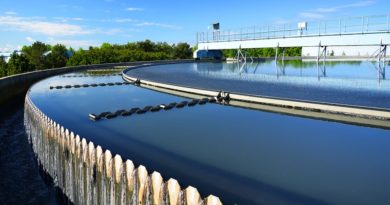
Reducing the energy dependence of European industries while accelerating their transition to decarbonized practices
The European industry is at the heart of the continent’s economy, yet it remains highly vulnerable to energy price volatility, supply disruptions and unfair competition. The energy crisis triggered by geopolitical tensions has laid bare the strategic weakness of Europe’s reliance on imported fossil fuels. According to Eurostat, the EU’s energy import dependency reached 55.5% in 2023, with natural gas and crude oil representing the largest shares — a dependency that weighs heavily on energy-intensive industries (EIIs) such as steel, cement, chemicals and glass. To address this structural vulnerability, targeted support mechanisms are needed. Power Purchase Agreements (PPAs) and Contracts for Difference (CfDs) offer a predictable price framework for renewable electricity, but their uptake remains hampered due to their complexity and the lack of de-risking measures, especially for SMEs.
As Rapporteur of the European Parliament’s oral question with resolution on energy-intensive industries, I am working to translate these concepts into concrete proposals.
Indeed, the text urges the Commission to explore additional ways to decouple fossil fuel prices from electricity prices, to address the barriers limiting the spread of long-term agreements, including with risk reduction instruments and public guarantees, and to bring forward the analysis of short-term electricity markets under the recently reformed Electricity Market Design (EMD) to 2025. The ‘anticipation-restitution’ model implemented in Italy presents another innovative approach, allowing EIIs to access renewable energy at a fixed price in exchange for commitments to invest in the same amount of new renewable capacity. This mechanism — known as Energy Release 2.0 — was introduced by the Italian Government in 2025 to support energy-intensive industries in their energy transition. The programme allows companies to receive electricity at a capped price for three years from the Italian Energy Services Manager (GSE), on the condition that they commit to building new renewable energy plants within 40 months.
The electricity received must be returned over 20 years at the same price through two-way contracts for difference. The new plants — solar, wind, or hydroelectric — must have a capacity at least double the amount of the energy initially provided, promoting self-consumption and boosting renewable energy production.
Instruments like this not only reduce exposure to fossil fuel markets, but also create direct incentives for industrial participation in the energy transition. Nevertheless, in the short to medium term – while keeping our decarbonisation objectives – tools are needed to ensure gas supply at a mitigated price, especially for those sectors that cannot rely substantially on electrification due to high up-front costs, low technological maturity or poor market readiness. Demand aggregation and joint gas purchasing mechanisms — already tested through the EU Energy Platform — have shown promising results in mitigating price volatility, but their scalability and long-term governance require further refinement. Our resolution also calls for better integration of the energy system, in particular by strengthening cross-border interconnections. Furthermore, it highlights that both private and public support will be needed: to this aim we propose to top-up InvestEU, to increase funding for EIIs in the next MFF, also through the Competitiveness Fund, and to make efficient use of national ETS revenues, essential to supporting industrial decarbonisation.
When it comes to preserve the level playing field for our industry, the Commission should also find a long-term solution to address unfair competition and structural overcapacity, before the expiry of the existing steel safeguard measures.
Furthermore, ensuring the effective implementation of the Carbon Border Adjustment Mechanism (CBAM) and creating ‘green’ lead markets for European products — including by introducing non-price criteria into public procurement — will play a key role in aligning industrial competitiveness with climate objectives. These measures can help European industries reduce their energy dependence while accelerating their transformation. The transition will require sustained investment, regulatory predictability and simplification, and a renewed industrial policy strategy capable of combining competitiveness with climate neutrality — a challenge that we must tackle collectively to preserve the future of the European industry.




